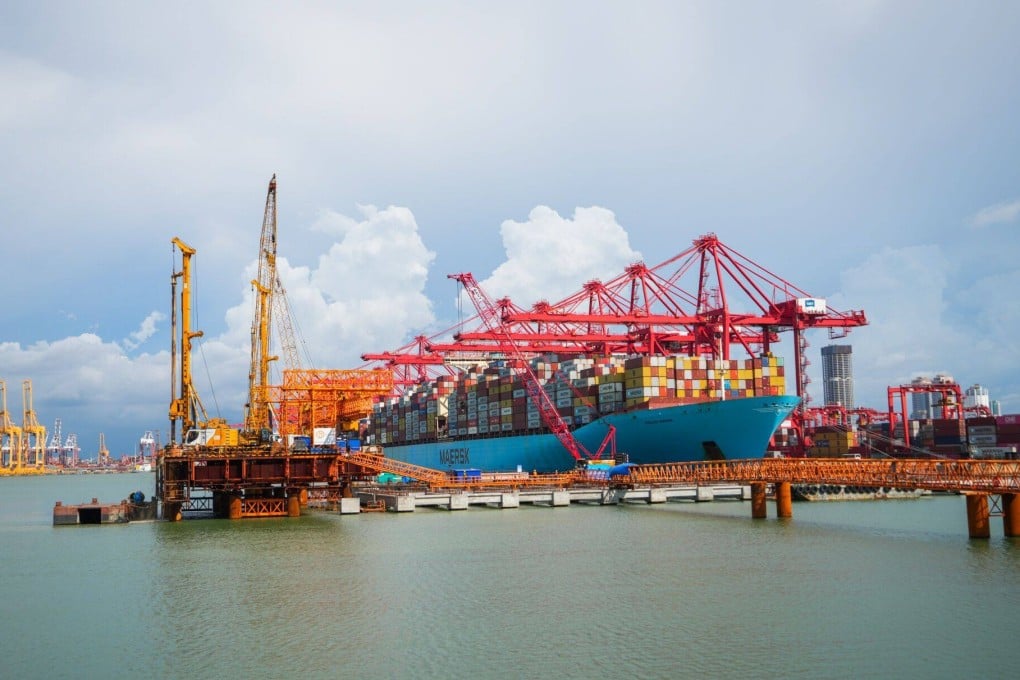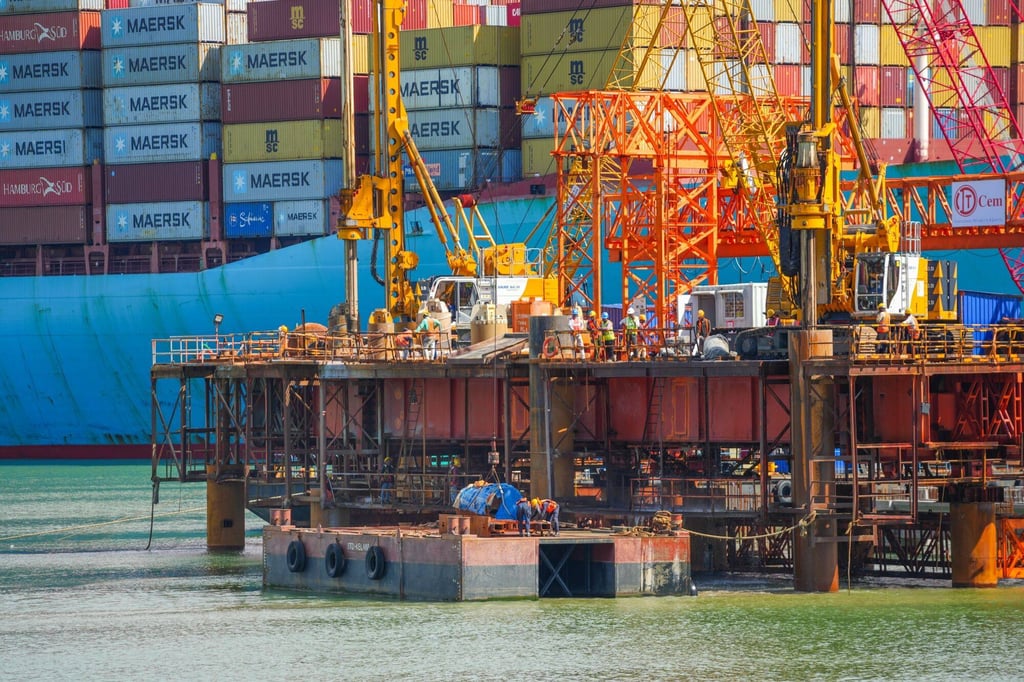A China rivalry twist emerges in Sri Lanka’s new US-funded, Indian-built port
- The container port terminal being built in Colombo by India’s Adani Group is mostly being paid for with funds from a US government agency
- Analysts say it hints at a new type of public-private partnership being rolled out as part of the Quad grouping’s infrastructure push

The Adani Group, controlled by Indian billionaire Gautam Adani and with businesses ranging from ports to edible oils, is developing the Colombo West International Terminal project in Sri Lanka’s capital and holds a 51 per cent stake in the project, backed by more than US$500 million in funding from a US government agency. Sri Lankan conglomerate John Keells Holdings and the state-run Sri Lanka Ports Authority hold the remaining stakes.

Analysts say the move signals a new determination on the Quad’s part to guard against smaller nations leaning too heavily on China and its arterial trade and military routes. Another terminal at the port is run by China Merchants Port Holdings Co Ltd.
Cedomir Nestrovic, a professor of geopolitics at the ESSEC Business School Asia-Pacific in Singapore, said it would be too simplistic to characterise the US-funded project as just another business deal.
He said geopolitical interests could be seen in the fact that the US$553 million in financing from the US International Development Finance Corporation, a federal government agency, represents nearly four-fifths of the US$700 million required to build the terminal.
There are not many other cases “where America has invested institutionally in this way, with this amount of money,” Nestrovic said. “The political motivation is part of the larger rivalry that exists between the United States and China.”
